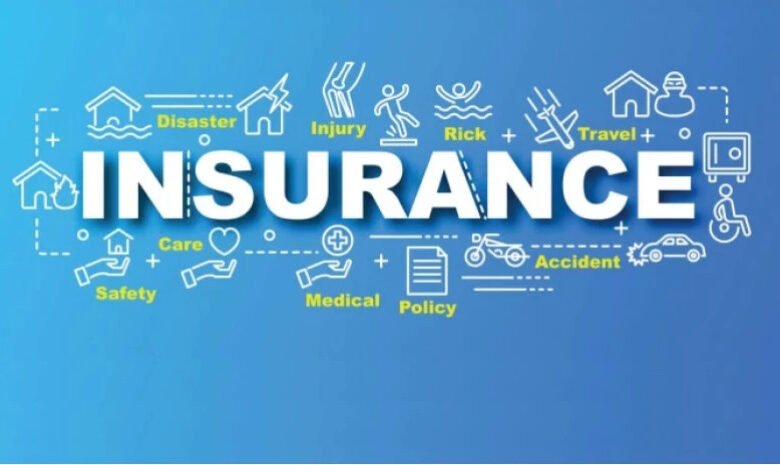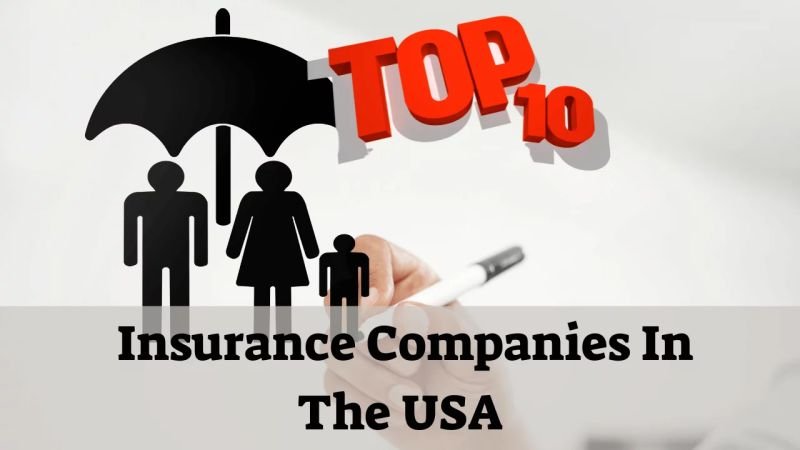Best Event Insurance Companies: A Complete Guide

When planning an event, whether it’s a wedding, corporate gathering, festival, or concert, ensuring the success of the event is the ultimate goal. However, unforeseen circumstances such as extreme weather, cancellations, accidents, or property damage can quickly derail your plans. This is where event insurance comes in, offering peace of mind and protection from financial loss due to unexpected incidents.
Event insurance is designed to safeguard both the event organizer and participants, covering a wide range of potential risks, from vendor no-shows to liability claims. Choosing the right insurance provider is crucial to ensure comprehensive coverage tailored to your specific event needs. With numerous event insurance companies available, finding the best option can be overwhelming.
In this article, we will explore the top event insurance companies, highlighting their offerings, key features, and benefits. Whether you’re hosting a small intimate gathering or a large-scale event, we’ll help you navigate your options and make an informed decision about the best event insurance for your needs.
Understanding Event Insurance
Planning a successful event involves a significant amount of time, effort, and investment. While most event organizers focus on the details such as the venue, guest lists, catering, and entertainment, one crucial element that is often overlooked is event insurance. Event insurance provides protection against various unforeseen circumstances that could disrupt or cancel an event, ultimately protecting both the organizer’s financial investment and the safety of attendees.
1 What is Event Insurance?
Event insurance is a type of coverage that helps protect against potential risks and losses associated with hosting events. It’s designed to cover financial damages resulting from cancellations, accidents, weather-related issues, and various other unexpected events. This insurance can apply to a wide range of events, from weddings and parties to corporate meetings, conferences, and large public festivals. It ensures that event organizers are not left with heavy financial burdens in the event of an emergency, making it a wise investment for any serious planner.
Event insurance policies vary, with different types of coverage catering to specific needs. The primary goal is to offer financial protection for the event organizers, vendors, and attendees, allowing you to focus on making the event a success without the constant worry of potential risks.
2 Types of Event Insurance Policies
There are several different types of event insurance policies, each designed to cover different aspects of an event. Choosing the right type of coverage depends on the nature of the event and the potential risks involved. Below are some of the most common types of event insurance policies:
2.1 General Liability Insurance
General Liability Insurance is one of the most essential types of coverage for any event. This policy protects the event organizer against third-party claims of bodily injury or property damage that may occur during the event. For example, if an attendee trips and falls, or if there’s accidental damage to the venue or its property, this insurance can help cover medical expenses, repairs, and legal fees if a lawsuit arises. It’s a must-have for most events, especially those with large crowds or public access.
2.2 Cancellation Insurance
Cancellation Insurance, sometimes referred to as event cancellation insurance, is designed to cover the costs if an event has to be canceled or postponed for unexpected reasons. These reasons could include illness, venue issues, key personnel being unavailable, or even extreme weather conditions. If an event is canceled, this insurance can reimburse the organizer for non-refundable deposits and pre-paid expenses, such as venue bookings and vendor contracts. This type of policy is especially important for large, costly events where cancellation could lead to significant financial loss.
2.3 Weather Insurance
For outdoor events, weather is always a potential risk factor. Weather Insurance protects against financial loss caused by weather conditions that could negatively impact the event. For example, heavy rain, strong winds, or extreme temperatures could cause an outdoor concert, wedding, or festival to be delayed, rescheduled, or canceled altogether. Weather Insurance ensures that the organizer is reimbursed for losses due to weather-related issues, which is particularly useful for events that are difficult to reschedule or relocate.
2.4 Liquor Liability Insurance
Liquor Liability Insurance is necessary when alcohol is being served at an event. It covers the event organizer if someone gets injured or damages property due to intoxication. For instance, if a guest consumes alcohol at the event and then causes an accident, this insurance will help cover legal and medical expenses that may arise from such incidents. If your event involves alcohol, this policy is often required by venues or local authorities to ensure that the event is legally compliant and that the risks associated with alcohol consumption are properly managed.
2.5 Coverage for Vendors and Professionals
Many events involve multiple vendors, contractors, and professionals who are responsible for catering, entertainment, audio-visual equipment, and more. Event insurance can extend coverage to these vendors and professionals, ensuring they are protected in case of accidents, cancellations, or damages. For example, if a caterer’s equipment fails or a photographer cancels at the last minute, coverage can help mitigate the financial consequences. This type of insurance ensures that all parties involved in the event have protection, which in turn protects the organizer from unexpected losses. Some event insurance policies can even cover damage or loss of rented equipment, making it a comprehensive safeguard for those working on the event.
Factors to Consider When Choosing an Event Insurance Company
Choosing the right event insurance company is crucial to ensure that your event is protected against unforeseen risks and potential losses. With so many companies offering different types of coverage, it can be challenging to determine which one is the best fit for your needs. Below are key factors to consider when selecting an event insurance provider that will offer comprehensive coverage, reliable service, and peace of mind.
1 Reputation and Reviews
The reputation of an event insurance company is one of the most important factors to consider. A company with a strong reputation is more likely to offer reliable service and stand behind their policies. To gauge a company’s reputation, start by reading customer reviews and testimonials online. Positive reviews from past clients often indicate that the company is trustworthy and has a history of providing good service. You can also check independent review platforms or insurance comparison websites for unbiased opinions. Additionally, consider the company’s reputation within the industry, as this can indicate their level of expertise and reliability. A reputable insurance company should have a history of honoring claims and providing clear communication throughout the event planning process.
2 Types of Coverage Offered
Different events come with different risks, and it’s essential that the insurance company you choose offers the specific types of coverage that are most relevant to your event. Some companies specialize in certain types of events, such as weddings or corporate conferences, while others may offer more general event insurance. Make sure the company provides the right combination of policies, such as general liability, cancellation insurance, weather coverage, and vendor protection. Take time to review the specifics of each policy to ensure it aligns with the unique needs of your event. If your event involves specific activities, such as serving alcohol or hosting outdoor entertainment, you may need additional coverage, such as liquor liability or weather insurance. A flexible insurance provider that offers tailored policies can help ensure that your event is fully protected.
3 Customer Service and Support
Excellent customer service is essential when choosing an event insurance company. The process of purchasing event insurance can sometimes be complex, and you may have questions or need assistance as you navigate the various policies. It’s important that the insurance provider has a responsive and knowledgeable customer support team that can address your concerns. A good company will be easy to reach, whether through phone, email, or live chat, and should be able to explain policy details clearly and answer any questions you may have. Additionally, consider how helpful and proactive the company is when it comes to offering guidance on the best coverage for your event. Having a customer service team that is attentive and ready to help can alleviate a lot of the stress that comes with planning an event.
4 Cost and Premiums
Cost is always an important factor when selecting an event insurance company. However, the cheapest option may not always provide the best coverage or service. When evaluating costs, it’s essential to compare premiums and consider what is included in the price. Make sure that the policy offers sufficient coverage for the specific risks your event may face. Some companies may provide lower premiums, but they may also offer limited coverage or have high deductibles, which could leave you with significant out-of-pocket expenses if something goes wrong. It’s wise to ask for a detailed breakdown of the premium and inquire about any hidden fees or additional costs that may arise during the claims process. While cost is a major factor, don’t sacrifice comprehensive coverage for a cheaper policy, as this can result in insufficient protection.
5 Claims Process and Timeliness
The claims process is a critical factor to consider when choosing an event insurance company. In the unfortunate event that something goes wrong, you want an insurance company that handles claims quickly and efficiently. Research the company’s claims process, paying attention to how easy it is to file a claim and how long it typically takes for claims to be processed. Some companies may offer online claim submission, making it easier to file paperwork and track the progress of your claim. The timeliness of claims processing is particularly important when dealing with events that have tight timelines, such as last-minute cancellations or damage claims. A reliable insurance company should offer prompt responses and communicate clearly throughout the claims process, so you’re not left waiting for an extended period while trying to resolve issues related to your event.
Tips for Planning and Purchasing Event Insurance
Planning and purchasing event insurance is an essential step in safeguarding your event against unexpected risks and losses. By understanding the potential risks and making informed decisions, you can ensure that your event is fully protected. Below are some key tips for planning and purchasing event insurance, to help you navigate the process smoothly and confidently.
1 Assessing Your Event’s Risk
Before purchasing event insurance, it’s crucial to assess the risks associated with your event. Understanding the potential risks will help you determine the appropriate coverage and ensure that your policy adequately addresses all possible scenarios. Start by considering the size and nature of your event. A small, private gathering will likely have fewer risks compared to a large-scale public event, such as a festival or concert. Key factors to assess include the location (indoors vs. outdoors), the number of attendees, whether alcohol will be served, and if any high-risk activities (such as fireworks, live performances, or complex equipment) will take place.
Next, think about the specific risks your event may face, such as inclement weather, vendor cancellations, or potential accidents involving attendees or employees. If you’re organizing an outdoor event, weather risks such as rain or extreme temperatures may require specialized coverage like weather insurance. For events involving vendors or suppliers, cancellation insurance may be necessary to protect against any last-minute issues. By thoroughly assessing the risks, you can customize your event insurance policy to cover all potential contingencies, ensuring comprehensive protection.
2 Working with Insurance Brokers
While many event insurance companies offer direct policies, working with an insurance broker can provide valuable expertise in finding the right coverage for your event. Insurance brokers act as intermediaries between you and insurance companies, helping you navigate the complexities of event insurance. A broker will assess your specific needs, evaluate your risks, and recommend suitable insurance policies that provide adequate coverage at the best price.
Brokers can also help you compare policies from multiple providers and explain the fine details of each option, ensuring you understand what’s covered and what’s not. If your event involves unique or high-risk factors, a broker can help tailor a policy to fit your needs. They can also assist with managing multiple policies, such as general liability and weather coverage, to ensure you’re fully protected. While brokers charge fees for their services, their knowledge and ability to negotiate on your behalf can often result in better coverage and more favorable terms.
3 Reading the Fine Print
When purchasing event insurance, it’s essential to carefully read the fine print of any policy before signing. Insurance policies are filled with specific terms and conditions, and failing to understand these details could leave you without the protection you need. Pay close attention to exclusions, limits of coverage, and any restrictions that may apply to your event. For instance, certain types of damage, like wear and tear or mechanical failure, may not be covered by standard policies.
It’s also important to look for any clauses that limit the time frame for filing claims or dictate how claims are handled. Some policies may require specific documentation or steps to be taken immediately after an incident occurs, such as notifying the insurance company within a set number of hours. Additionally, check for any hidden fees or additional charges that may apply, such as deductibles or policy cancellation fees. By thoroughly reviewing the policy’s fine print, you can avoid surprises and ensure that you’re getting the right coverage for your event.
4 Renewal and Long-term Coverage
While event insurance is typically purchased for a one-time event, it’s important to consider the long-term aspects of insurance coverage if you regularly organize events. If you’re planning multiple events throughout the year, some insurance providers offer renewal options or long-term policies that can help you save on premiums and ensure continuous coverage. If you have ongoing or recurring events, such as annual festivals, corporate meetings, or seasonal celebrations, setting up a long-term insurance plan can be more cost-effective and hassle-free than purchasing separate policies for each individual event.
Before committing to a long-term insurance policy, be sure to evaluate whether the coverage will remain suitable for the size, scale, and nature of your future events. Consider working with an insurance provider that offers flexible policy options that can evolve with your changing event needs. Additionally, ensure that you understand the renewal process, including any potential price increases, adjustments to coverage, and changes in terms and conditions. By planning ahead for renewal and long-term coverage, you can maintain continuous protection and avoid gaps in your insurance coverage between events.
Why Do You Need Event Insurance?
Event insurance is crucial because it helps protect you from potential financial losses that could arise if something goes wrong during your event. Here are some common risks that event insurance covers:
- Event Cancellation: Sometimes, an event has to be canceled or postponed due to reasons like bad weather, illness, or an emergency. Event insurance can help you recover the costs for things like vendor fees, non-refundable deposits, and venue rentals.
- Liability Coverage: If an accident happens at your event, such as someone getting injured or damaging property, liability coverage can help cover medical expenses and legal fees.
- Property Damage: Event insurance can cover the costs of any damage to the venue or rented equipment, including tents, stages, or audio-visual equipment.
- Vendor No-Shows: If a vendor (such as a caterer, photographer, or entertainer) fails to show up, event insurance can help you find a replacement and cover additional costs.
- Lost or Stolen Equipment: Event insurance can protect you if any of your rented or owned equipment gets damaged, lost, or stolen.
Top Event Insurance Companies
Below are some of the best event insurance companies that offer comprehensive coverage for various events:
1. Event Helper
Overview: Event Helper is known for providing affordable and customizable event insurance. They cater to weddings, parties, festivals, corporate events, and more. Their policies are designed to fit small gatherings as well as large events.
Key Features:
- Wedding Insurance: Covers cancellation, damages, liability, and lost deposits.
- General Liability Insurance: Ideal for corporate events, parties, or any gathering with guests.
- Specialty Coverage: Offers coverage for things like food poisoning, alcohol-related incidents, and weather-related cancellations.
Why Choose Event Helper?
Event Helper offers easy-to-understand policies and fast online quotes. They also have a reputation for good customer service and quick claim processing.
2. WedSafe
Overview: WedSafe specializes in wedding event insurance but also offers coverage for other events like bridal showers, engagement parties, and anniversaries. They are one of the most trusted names in the wedding insurance industry.
Key Features:
- Wedding Cancellation Coverage: Helps you recover deposits if your wedding needs to be canceled for covered reasons.
- Liability Insurance: Covers property damage, injuries, or accidents that occur during your wedding.
- Vendor Failure: Protects you if a vendor doesn’t deliver services as promised.
Why Choose WedSafe?
WedSafe is highly regarded in the wedding industry for offering flexible and detailed coverage options. Their wedding insurance policies are designed to help couples cover all aspects of their wedding planning, from the ceremony to the reception.
3. The Event Insurance Group
Overview: The Event Insurance Group is one of the largest providers of event insurance, offering comprehensive coverage for all kinds of events, including festivals, conferences, trade shows, and corporate events.
Key Features:
- Cancellation & Postponement Coverage: Reimburses you for non-refundable expenses if your event is canceled or postponed due to unforeseen circumstances.
- Liability Coverage: Protects you against injuries or property damage that might occur at your event.
- Weather Insurance: Covers losses due to bad weather for outdoor events.
- Special Events Coverage: Offers insurance for unique events such as sporting events, charity fundraisers, and conventions.
Why Choose The Event Insurance Group?
They offer a variety of policies that can be customized to fit your event type, size, and budget. Their 24/7 customer service is a standout feature, ensuring you have access to support at any time.
4. Markel Event Insurance
Overview: Markel is a highly rated provider of event insurance, offering both comprehensive coverage and specialized options. Markel is known for its easy-to-navigate policies and efficient claims process.
Key Features:
- General Liability Insurance: Covers property damage and injuries caused during the event.
- Cancellation Insurance: Helps you recoup costs if your event is delayed or canceled due to unforeseen circumstances like illness or natural disasters.
- Rain Insurance: Ideal for outdoor events, Markel offers weather-related insurance to protect against cancellations due to weather conditions.
- Vendor Failure: Offers coverage if a vendor fails to provide contracted services.
Why Choose Markel?
Markel stands out for its flexible coverage options, making it a great choice for both large and small events. They offer competitive pricing and a user-friendly platform for purchasing insurance.
5. Thimble
Overview: Thimble is a newer player in the event insurance market, but it has quickly gained popularity for offering short-term, on-demand insurance. It’s a great option if you only need coverage for a one-time event, such as a concert or party.
Key Features:
- Pay-Per-Hour Insurance: You can purchase insurance for as little as one hour or for the full day of your event.
- General Liability: Coverage for accidents, injuries, and property damage.
- Special Event Insurance: Covers a wide range of events, from private parties to professional gatherings.
Why Choose Thimble?
Thimble offers a flexible, on-demand insurance model, allowing you to buy insurance when you need it and only for the time your event lasts. This is particularly useful for short-term events with a quick turnaround.
6. Nationwide Event Insurance
Overview: Nationwide is a trusted name in the insurance industry and offers a wide range of event insurance options, including general liability and cancellation coverage.
Key Features:
- Liability Insurance: Protection against accidents and injuries at the event.
- Cancellation Coverage: Reimbursement for expenses if the event needs to be rescheduled or canceled.
- Weather Protection: Coverage for outdoor events in case of weather disruptions.
Why Choose Nationwide?
Nationwide offers a solid reputation for reliability and customer support. Their event insurance policies are tailored to different types of events, with a range of options for small to large gatherings.
Tips for Choosing the Right Event Insurance
When selecting event insurance, it’s important to choose a provider that fits your specific needs. Here are some tips to help you make the right decision:
- Assess Your Risks: Think about the type of event you’re hosting and the potential risks involved. For example, if you’re holding an outdoor wedding, you might need weather-related coverage.
- Review Coverage Options: Make sure the insurance covers all the aspects of your event, including cancellation, liability, property damage, and vendor failure.
- Compare Quotes: Don’t settle for the first quote you get. Compare rates and coverage options from different providers to find the best deal.
- Check Customer Reviews: Look for customer feedback on the insurer’s website or third-party review platforms to ensure they have a reputation for good service and reliable claims processing.



